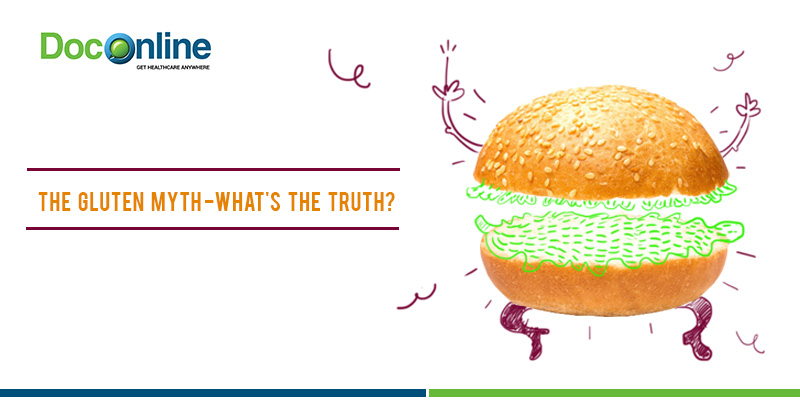Gluten-free diets are the latest craze for those looking to lose weight. But what is it?
Gluten is a protein found in wheat, rye, and barley. Since most of the processed food are made up of wheat, gluten is largely seen in pasta, breads and cereals.
Some people are forced to avoid gluten because they suffer from an autoimmune condition called celiac disease.
What is Celiac disease?
Celiac disease is an auto-immune disorder in which the body’s immune response to gluten damages the small intestine lining. This results in abdominal pain, bloating, nausea and diarrhea. Celiac disease prevents absorption of vitamins and minerals and promotes weight loss.
There are other people who avoid gluten because of the gluten intolerance, which mimics symptoms of Celiac disease without the immune response.
Celiac disease has been on the rise since the past 50 years. These days, the quality of wheat has changed. This is because with more innovation and upcoming technologies, now, we have faster growing hybridized crops that are chemically treated. Consequently, there is generation of new proteins, which result in increased systemic inflammation and widespread gluten intolerance.
Does Gluten-free diet result in weight loss?
There’s absolutely no evidence that by simply getting rid of gluten, it will result in weight loss. However, a gluten-free diet may often trigger you to eat more whole, unprocessed foods such as fruits, vegetables, legumes and lean meats. This change in diet to healthier options can help lower calories, and thus, result in weight loss.
People eating gluten-free diet can also tend to make healthier food choices. Switching from cheeseburgers to legumes, salads and sweet potatoes is a welcome choice. This contributes to weigh reduction in the long run. Thus, going gluten-free helps in adopting a healthy lifestyle as you avoid all the processed food, which are low on nutrients.
However, a gluten-free does not necessarily mean healthy. This is because all food that are gluten free might also be rich in high sugar and fat content, thus causing more harm than benefits. To compensate for that, you should ensure that your diet is rich in fruits, vegetables, and legumes to avoid vitamin/mineral deficiencies, thus actually promoting a healthy weight and lifestyle.
Gluten free diet and lifestyle diseases
Various lifestyle diseases like hypertension and diabetes occur due to improper lifestyle habits. Wheat eaters who have a high carbohydrate intake run the risk of increased sugar levels in their bodies. This, further, aggravates various other diseases. When you go gluten free, you need to stop eating various junk food and aerated drinks. Besides, physical activity and regular exercise are equally important.
Your Take Away
We all vary from individual to individual. For some individuals, when they consume carbohydrates, wheat and such-like, the gluten protein in it may suit them at the biological level. While for others it may not.
Gluten-free diets are typically consumed by those who are unable to tolerate gluten at the biological level. However, some people choose to follow a gluten-free diet for a healthier living.
There is no harm in avoiding gluten but remember to consume a balanced diet rich in fruits, vegetables and legumes. Make sure that your gluten-free choices are still 100% whole grain, such as quinoa or brown rice.
You lose weight when you expend more calories or energy than you consume Diet and exercise are both important components of weight management and a healthy lifestyle. To know more, consult a doctor online, anytime.
So, don’t follow fad diets blindly. Instead, go for a wholesome meal along with exercise to reduce weight, get better health and lead a healthier life!













